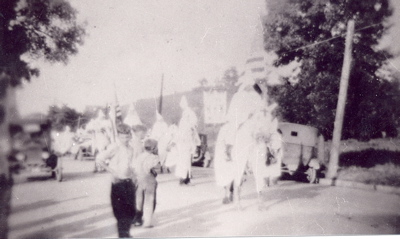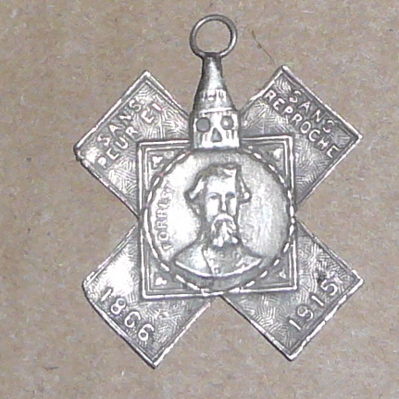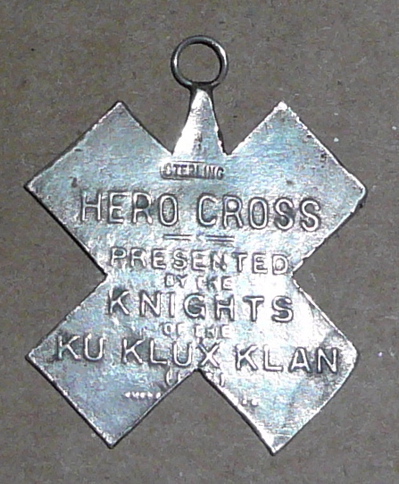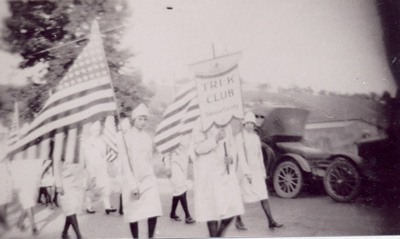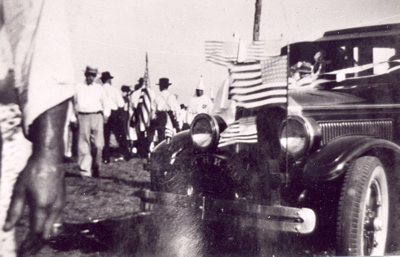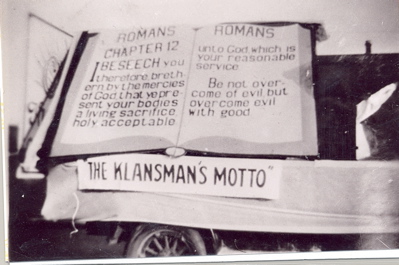Encyclopedia Dubuque
"Encyclopedia Dubuque is the online authority for all things Dubuque, written by the people who know the city best.”
Marshall Cohen—researcher and producer, CNN
Affiliated with the Local History Network of the State Historical Society of Iowa, and the Iowa Museum Association.
KU KLUX KLAN
KU KLUX KLAN. Known by its initials, K.K.K., the Klan was originally a southern white supremacist organization. It was developed during Reconstruction following the CIVIL WAR to prevent AFRICAN AMERICANS from pursuing civil rights granted ex-slaves in federal legislation. The passage of the Ku Klux Klan Act of 1871 led to a decline in the movement until after WORLD WAR I when it was revived as anti-Catholic, anti-Semitic, anti-African American, anti-foreign, and anti-organized labor.
With the rebirth of the movement came the familiar secrecy and white cloaks. Members attended "konklaves" and sang "klodes." Limited in membership to white Protestant men, the organization's membership peaked nationally in 1925 with an estimated five million members.
Dubuqueland chapters of the Klan varied from extreme patriotic clubs to fervently anti-Catholic groups.
The first burning of a cross was seen on December 4, 1925, by residents of the north end. Within the next year and one-half, two additional crosses were burned in the city.
Reaction to the Klan included an attempt in April 1924, to break up a meeting. Several anti-Klan participants were arrested and three were injured.
A "Konklave," held in 1925 on an eighty-acre "klavern" on Peru Road, was said to have attracted thousands who paid admission.
In 1926 the Klan successfully petitioned the city council for a parade permit. Klan members from Elkader and Maquoketa attended along with the Charles City "Kitchen Kanaries," a musical group. Local participation in the festivities included the Dubuque Ladies Klan Drill Team.
By 1927 membership in the Klan had begun to decline although some merchants continued to encourage business with the sign "TWK" (Trade with Klansmen) in their windows.
The flaming cross again appeared in Dubuque on October 23,1989, when a charred cross inscribed with "KKK lives" was found in the burned remains of a garage belonging to an officer of the Dubuque NATIONAL ASSOCIATION FOR THE ADVANCEMENT OF COLORED PEOPLE (N.A.A.C.P.).


